MercoPress. South Atlantic News Agency
Tag: Unemployment
-
Thursday, April 2nd 2020 - 07:50 UTC
US unemployment claims expected at record high: 80% Americans under some form of lockdown
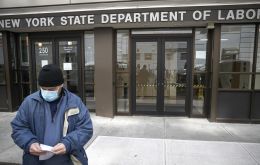
The number of Americans filing claims for unemployment benefits likely shot to a record high for a second week in a row as more jurisdictions enforced stay-at-home measures to curb the coronavirus pandemic, which economists say has pushed the economy into recession.
-
Tuesday, March 31st 2020 - 09:20 UTC
Spain overtakes China in Coronavirus infections; business leaders warn of impact on jobs with the lockdown

Spain overtook China in the number of those infected with coronavirus on Monday as the government tightened restrictions on a population entering its third week under one of the strictest lockdowns in Europe.
-
Friday, March 27th 2020 - 09:08 UTC
World leaders pledge US$ 5 trillion to address the global economic collapse
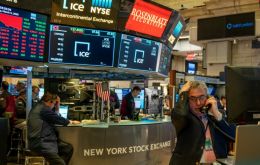
World leaders on Thursday promised US$5 trillion to stave off global economic collapse from the coronavirus pandemic that has killed 21,000 people and shut down huge swathes of the globe.
-
Thursday, March 19th 2020 - 08:23 UTC
Mnuchin denies potential US unemployment of 20% but considers a US$ 2.000 stimulus check to every American
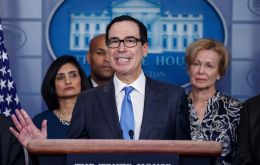
Treasury Secretary Steven Mnuchin on Wednesday vowed that unemployment would not reach 20%, seeking to clarify comments he made a day earlier on a worst-case economic scenario resulting from the coronavirus pandemic.
-
Saturday, February 1st 2020 - 08:43 UTC
Chile unemployment rose to 7% in the last quarter of 2019
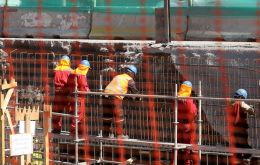
Chile’s jobless rate rose to 7.0% during the October to December period, the government said on Friday, an early, but still tepid, sign of the potential impact of two months of unrest in late 2019.
-
Saturday, December 28th 2019 - 09:48 UTC
Argentina's unemployment in the third quarter rose to 9.7%
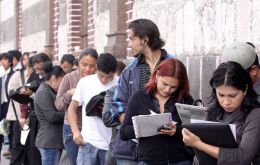
Argentina’s unemployment rate rose to 9.7% in the third quarter versus 9.0% in the same period last year, marking one of the highest rates recorded in recent years, the official INDEC statistics agency said.
-
Thursday, December 5th 2019 - 09:04 UTC
With 3.6% jobless rate, Trump plans to cut food stamp program; “we need everyone who can work, to work”

The Trump administration said on Wednesday it will make it harder for states to keep residents in the U.S. food stamp program in a move that is projected to end benefits for nearly 700,000 people.
-
Tuesday, December 3rd 2019 - 09:45 UTC
Brazilian unemployment statistically stable at 11.6% in the Aug/Oct quarter

Brazil's unemployment rate fell to 11.6% in the quarter ending in October, from 11.8% in the quarter ending in July, the country's Institute of Geography and Statistics (IBGE) announced. The rate also fell slightly, compared with the same period of 2018 when it was at 11.7%.
-
Friday, September 20th 2019 - 16:44 UTC
Unemployment on the rise in Macri's Argentina

Unemployment in Argentina reached 10.6% in the second quarter of 2019, the highest ever since President Mauricio Macri took office in December, 2015, according to data released Thursday by the National Institute of Statistics and Census (INDEC).
-
Thursday, June 20th 2019 - 09:46 UTC
Unemployment in Argentina jumps to 10.1% in the first quarter of 2019
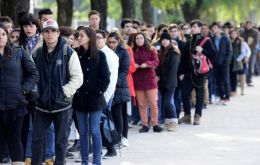
Argentina's unemployment rate rose to 10.1% in the first quarter from 9.1% in the first three months of last year, the official INDEC statistics agency said. This is the highest level since current president Mauricio Macri took office, and the worst in thirteen years.
